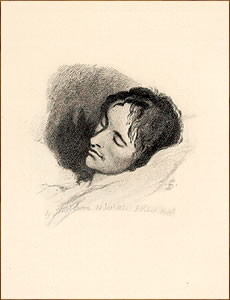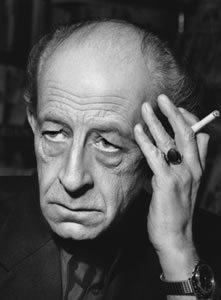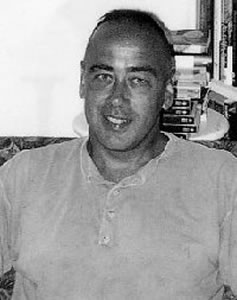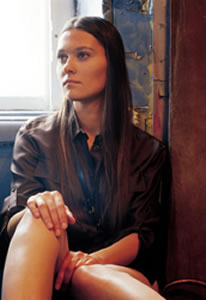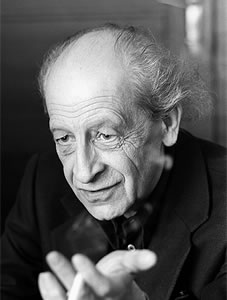De Amerikaanse dichter, schrijver en literatuurcriticus Bruce Bawer werd geboren op 31 oktober 1956 in New York. Daar studeerde hij ook Engels aan de State University. In1998 trok hij van New York, waar hij o.a. schreef voor Newsweek en The Wall Street Journal naar Amsterdam, aangetrokken door het vrijere klimaat daar voor homo’s. In zijn boek While Europe Slept: How Radical Islam is Destroying the West from Within uit 2006 leverde hij kritiek op radicale vormen van de islam.
Werk o.a.: The Screenplay’s the Thing: Movie Criticism, 1986-1990, Coast to Coast, 1993, A Place at the Table: The Gay Individual in American Society, 1994, Prophets and Professors: Essays On the Lives and Work of Modern Poets, 1995, Stealing Jesus: How Fundamentalism Betrays Christianity, 1998
Uit: While Europe Slept
„ON THE MORNING OF November 2, 2004, I sat at my mother’s kitchen table in Queens, New York, drinking instant coffee and thinking about George W. Bush and John Kerry. It was Election Day, and I was irked that since I was flying back home to Oslo that evening, I’d miss the vote count on TV.
The phone rang. “Hello? Oh, yes. Just a moment.” My mother held out the phone. “It’s Mark.” I took it.
“Mark?”
“Hi, Bruce. Have you heard about Theo van Gogh?”
“No, what?”
“He was murdered this morning.”
“You’re kidding.”
Mark, like me, is an American with a Norwegian partner. But though he moved back to New York years ago, he still starts the day by checking the news at the Web site of NRK, Norway’s national radio and TV network. Switching into Norwegian, he read me the story. Van Gogh, the Dutch filmmaker and newspaper columnist, had been shot and killed in Amsterdam. Shortly afterward, police had arrested a twenty-six-year-old Dutch-Moroccan man.
Later, I’d learn more. Van Gogh had been bicycling to work along a street called Linnaeusstraat when Mohammed Bouyeri, the Dutch-born son of Moroccan parents and a member of a radical Muslim network, had shot him, knocking him off his bicycle. Bouyeri, wearing a long jellaba, pumped up to twenty additional bullets into van Gogh’s body, stabbed him several times, and slit his throat. He then pinned to van Gogh’s chest with a knife a five-page letter addressed to the filmmaker’s collaborator, Parliament member Ayaan Hirsi Ali, quoting the Koran and promising her and several other Dutch leaders (whom he named) a similar end:
I know definitely that you, O America, will go down. I know definitely that you, O Europe, will go down. I know definitely that you, O Netherlands, will go down. I know definitely that you, O Hirsi Ali, will go down.
According to witnesses, van Gogh had said to his murderer (who at the time was living on welfare payments from the Dutch government): “Don’t do it! Don’t do it! Mercy! Mercy!” And: “Surely we can talk about this.” The blunt, outspoken van Gogh had been an unsparing critic of European passivity in the face of fundamentalist Islam; unlike most Europeans, he’d understood the connection between the war on terror and the European integration crisis, and had called America “the last beacon of hope in a steadily darkening world.” Together he and Hirsi Ali had made a short film, Submission–he’d directed, she’d written the script–about the mistreatment of women in Islamic cultures. Yet at the end, it seemed, even he had grasped at the Western European elite’s most unshakable article of faith–the belief in peace and reconciliation through dialogue.“
Bruce Bawer (New York, 31 oktober 1956)
De Russische schrijfster Irina Denezhkina werd geboren op 31 oktober 1981 in Yekaterinburg. Zij is nogal omstreden vanwege haar vulgaire stijl, die door sommigen gezien wordt als een afspiegeling van de realiteit van de generatie Y. Haar debuut Give Me [Songs for Lovers] uit 2002 verscheen in Engelse vertaling in 2004. Haar eerste werk verscheen onder het pseudoniem Nigers zuster in 2000 op het internet
Uit: Give Me!
What d”you want? Coffee?”
Lyapa stood in the middle of the room, naked from the waist up, confused and sweaty. His underwear was sticking out of the top of his pants. I felt like saying “You,” but I thought that would only lead to even greater confusion and he might simply take root where he stood. Just stand there like a statue. Then what would I do?
“Coffee? Or tea?”
“Coffee, coffee…”
Relieved, Lyapa reached into a cupboard, switched on the kettle, rummaged in the fridge and took out some milk. Dived back into the fridge and took out a bottle of beer. Then another. Opened one and began sucking on it greedily.
I sat down at the table, propping my head up on my hands. Lyapa”s hair sticks up, twisted into spikes like a hedgehog”s. He has two silver rings in his ear, a big nose and big round eyes like a puppy. He”s like a puppy all over: fidgety, bouncy, soft and bendy. As my girlfriend Volkova says — “makes you want to squeeze and hug him.” Lyapa”s beautiful. His dream is he”s walking down the street and girls run up to him yelling “Lyapa! Lyapa!” desperate to give him a blowjob. Lyapa plays punk rock and wants to be famous. And he wants me to stop sitting here like a fool and embarrassing him. Or maybe he doesn”t. I can”t see that deep into the darkness of his soul.
The kettle boiled. Lyapa spooned out some coffee for me, then sugar, poured over the boiling water. He sat down facing me and began smoking intently. Staring fixedly at the bridge of my nose. A word about me: I”m three inches taller than Lyapa, with long dark hair, brown eyes, an immensely high opinion of myself and the figure of a model. That”s what one guy told me, but I know it wouldn”t hurt to slim a bit and my stomach”s not flat from working out, it”s because I don”t eat much.
Anyway, Lyapa”s my husband. We got married online, or actually he married me; all I did was passively click “Yes.” The jerk had seen my photos, but he didn”t send his own. Wrote that he didn”t have one, said he didn”t have a scanner or some other excuse. Volkova and I conferred about it and decided he was probably an ugly freak. Fuck him, we decided. Volkova sighed dramatically and made an elegant gesture with her hand. Then he suggested meeting in the metro. We didn”t have anything else to do, so we went to meet him, but prepared ourselves for disappointment in advance.
Irina Denezhkina (Yekaterinburg, 31 oktober 1981)
De Canadese schrijver Joseph Boyden werd geboren op 31 oktober 1966 in Willowdale, Ontario. Hij studeerde creatief schrijven aan de University of New Orleans en doceerde vervolgens aan Northern College. Zijn debuutroman Three Day Road won de Amazon/Books in Canada First Novel Award in 2006. Het boek vertelt het verhaal van twee Canadese soldaten tijdens WO I.
Werk o.a.: Born With a Tooth (2001, short stories), Three Day Road (2005), Through Black Spruce (2008)
Uit: Three Day Road
For many days I’ve hidden in the bush by the town, coming out when I hear the call, watching carefully for him. This is an ugly town, far bigger than Moose Factory, even. This is a town I have not been to before, a place to which I will never return. More wemistikoshiw than I want to see walk the dusty streets in their funny clothes, dressed as if for colder weather, though the sun above us is high and full of summer heat.
I hide well during the day, but when the sound of it reaches my ears I have no choice but to come out and walk among them. They stare and point and talk about me as if they’ve not seen one of me before. I must look a thin and wild old woman to them, an Indian animal straight out of the bush. Soon I will have only enough food left to get us home, and so I’ve taken to setting snares around my camp. The rabbits, though, seem as afraid of this place as I am.
Where it comes to rest is just a wooden platform with a small shelter to hide in when the weather turns. The road that leads up to it is covered in dust. Automobiles, just like the one Old Man Ferguson back in Moose Factory drives, rush there at the same time every other day. I have watched them pour what smells like lantern oil onto the road, but still the dust floats up so that it coats the inside of my nose and bothers my eyes. At least I can hide a little in the dust, and not so many of them can see me.
The place where I go is covered in soot so that I feel the need to bathe each day that I return from there without him. I have stopped sleeping at night, worried that the words were wrong, that he will never come, that I will die here waiting.
Again today I hear the call. Again today I wait for the others to get there before me, before I step among them.
The old ones call it the iron toboggan. As I watch this thing approach, whistle blowing and smoke pouring from the chimney in the summer heat, I see nothing of the toboggan in it. More frightening than the crowd of people around me is the one bright eye shining in the sunlight and the iron nose that sniffs the track.
Too many people. I’ve never been around so many wemistikoshiw at one time. They walk and jostle and talk and shout to one another. I look out at the spruce across the tracks. Blackened by soot, they bend in defeat.
I stand back in the shadow of the shelter and watch as the people in front of me tense, then move closer to the track as it approaches, not further away as I would have expected. The women in the crowd look nothing like me, wear long dresses made of too much material and big hats. They hold bowed cloth shields above their heads. The men are dressed in black and brown and grey suits, and the shoes upon their feet are shiny, so shiny that I wonder what kind of animal the leather has come from. All of the men wear hats, too. All these people wearing hats in summer. I do not understand much of the wemistikoshiw.
Joseph Boyden (Willowdale, 31 oktober 1966)
De Duitse schrijver Ernst Augustin werd geboren op 31 oktober 1927 in Hirschberg. Zijn jeugd bracht hij door in Schweidnitz en Schwerin. Tot 1950 studeerde hij medicijnen in Rostock, daarna in Berlijn waar hij in 1952 promoveerde aan de Humboldt-Universität. Tot 1958 werkte hij ook als arts, o.a. in het Oost-Berlijnse Charité ziekenhuis. In 1958 vluchtte hij naar de BRD. Hij werkte daarna als arts in Afghanistan en maakte reizen naar India, Turkije en de Sovjet Unie. Tegenwoordig woont hij in München. Augustin schrijft literatuur in de trand van Kafka en de surrealisten.
Werk o.a.: Gutes Geld. Roman in drei Anleitungen, 1996, Die Schule der Nackten, 2003, Der Künzler am Werk. Eine Menagerie, 2004, Badehaus Zwei, 2006
Uit: Die Schule der Nackten
„Es gibt dort eine Freizone, wo ich alles ablege. Alle Bindungen, alle erworbenen Eigenschaften, meinen Beruf, meinen Namen, meine gesamte Vergangenheit, auch Schuhe und Strümpfe, das Hemd mit dem „Armani“-Etikett, die Hose von „Böttiger“ und das gesamte Unterzeug. Ich gebe meine gehobene Stellung ab, den Schutz und den Schirm, den Anstand und die Begierde (denn die ist dort nicht angebracht), vor allem aber gebe ich meine Scham ab. Oder besser, die Schämigkeit.
München im schweren Sommer. Die Häuser dunkelgelb, die Kirchenplätze glühend, überall schwingen sich schwere Glockentöne von den Türmen, und da ist das Jakobi-Bad vor der Tür: Männer mit Bäuchen gehen dahin, Frauen in Flatterhosen, gehen hin und kehren nicht zurück, und wenn, dann nicht so wie sie gekommen sind.
Es gibt dort eine Bretterwand, die sich von einem zum anderen Ende hinzieht. In der Mitte eine verstellte Lücke, eine Art Schleuse: Freikörpergelände, Zugang nur ohne Kleidung gestattet. Und das ist ernst gemeint, denn dieses ist eine ganz vordergründige Geschichte, jede vermeintliche Metapher ist ganz wörtlich zu nehmen. Das Ungeheuer, das hier das Haupt erhebt, hat wirklich goldene Augen! Ich meine, es hat goldene Augen.
*
Ein denkwürdiger Tag, als ich dort zum ersten Mal eintrat. Zu einer heißen Stunde am frühen Nachmittag, nachdem ich drei Stunden lang auf dem Rasen vor der Bretterwand gelegen hatte. Das heißt, eine Stunde lang unvernünftig prall in der Sonne und dann zwei im Halbschatten bei anhaltender Hitze, während ich den Bäuchen und den Flattergewändern nachsah, wie sie in der ominösen Bretterschleuse verschwanden. Hier draußen erstreckte sich eine heitere Badelandschaft in Grün, Weiß und Blau über einen halben Kilometer. Blau wegen der fünf großen Badebecken voller Kinder und schöner junger Erwachsener, die allesamt ein brausendes Geräusch erzeugten, einen Pegel von gleichbleibender Dichte, einer Meeresbrandung nicht unähnlich. Dazu die Glocken, sich von Türmen schwingend, gelbe wogende Kornfelder irgendwo weiter draußen. München im schweren Sommer.
Die Stadt der Nackten!“
Ernst Augustin (Hirschberg, 31 oktober 1927)
De Braziliaanse dichter Carlos Drummond de Andrade werd geboren op 31 oktober 1902 in Itabira, een klein dorpje in de staat Minas Gerais. Hij ging naar school in Belo Horizonte waar hij afstudeerde als apotheker, maar dat beroep oefende hij nooit uit. Voor het grootste deel van zijn leven werkte hij voor de Braziliaanse overheid maar naast zijn werk als ambtenaar schreef hij gedichten, kronieken en boeken voor kinderen. De laatste jaren van zijn leven bracht hij door in Rio de Janeiro alwaar hij een standbeeld kreeg na zijn dood, zittende op een bank aan het strand van Copacabana.
Ook ik was eens Braziliaan
Ook ik was eens Braziliaan,
even bruin als jullie.
Speelde gitaar, reed in een Fordje
en leerde aan cafétafels
dat nationalisme een deugd is.
Maar er komt een uur dat de cafés sluiten
en alle deugden worden verloochend.
Ook ik was eens een dichter.
Hoefde maar een vrouw te zien
en dacht al aan de sterren
en andere hemelse substantieven.
Maar zij waren zo vele, de hemel zo groot,
mijn poëzie raakte ontregeld.
Ook ik had eens mijn ritme.
Ik deed van dit, ik zei van dat.
En mijn vrienden mochten me,
en mijn vrienden haatten me.
Ik, ironisch, gleed voort,
tevreden met mijn ritme.
Maar ten slotte verwarde ik alles.
Nu glijd ik niet meer, oh nee,
ben niet ironisch meer, oh nee,
heb ook geen ritme meer, oh nee.
Liefdes verschijning
Zoet droombeeld, waarom kom je mij bezoeken
zoals in voorbije tijden onze lichamen elkaar bezochten?
Je doorschijnendheid beroert mijn huid, verleidt
opnieuw tot strelingen, die onuitvoerbaar zijn: niemand heeft ooit
een kus van een vergaan gelaat gekregen.
Maar je dringt aan, mijn lief. Ik hoor je stem,
dezelfde stem, dezelfde klank,
dezelfde lichte lettergrepen,
en diezelfde lange zucht
waarin je van genot bezwijmde,
en daarna die uiteindelijke rust van gemzen.
Nu ben ik overtuigd,
ik hoor je naam, het enige van jou dat niet vergaat
en blijft bestaan als enkel klank.
En ik omstrengel… wat? de massa lucht die jij nu bent
en ik omhels en kus en kus intens het niets.
O wezen zo geliefd en nu vernietigd, waarom kom je
terug, zo werkelijk en zo onwezenlijk?
Ik onderscheid niet meer of je nu schaduw bent
of schaduw altijd bent geweest, en of onze geschiedenis
boekenverzinsel is, gespeld
onder vermoeide wimpers.
Zal ik ooit je ware lichaam
kunnen kennen zoals ik het nu ken,
nu ik de damp omstrengel net zoals men
de platonische idee omstrengelt in de ruimte?
Blijft in jou, die niet meer bent,
beminde afwezige, verlangen mij lieflijk vervolgen?
Ik had nooit gedacht dat doden
ook dat vuur hadden van vroeger dagen
en het op ons overbrachten in een slurpen
van vlammen en van ijs dooreen.
Je vurige bezoek is mooi.
Je vurige bezoek is ook gemeen.
Je bezoek is niet meer dan een fooi.
Het geheim van wie bemint
Het geheim van wie bemint
is: niet slechts vluchtig het genot
te kennen dat ons diep doordringt,
tot stand gebracht op deze aarde
en zo verre van de wereld
dat het lichaam, dat zijn lichaam vindt
en daarin voortgaat op zijn vaart,
de vrede vindt van groter gaarde,
vrede als in de dood, onaards,
als een nirwana, penisslaap.
Vertaald door August Willemsen
Carlos Drummond de Andrade (31 oktober 1902 – 17 augustus 1987)
De Engelse dichter John Keats werd geboren op 31 oktober 1795 in Finsbury Pavement in London. Zie ook mijn blog van 31 oktober 2006 en ook mijn blog van 31 oktober 2007.
Dedication
To Leigh Hunt, Esq.
Glory and loveliness have passed away;
For if we wander out in early morn,
No wreathed incense do we see upborne
Into the east, to meet the smiling day:
No crowd of nymphs soft voic’d and young, and gay,
In woven baskets bringing ears of corn,
Roses, and pinks, and violets, to adorn
The shrine of Flora in her early May.
But there are left delights as high as these,
And I shall ever bless my destiny,
That in a time, when under pleasant trees
Pan is no longer sought, I feel a free
A leafy luxury, seeing I could please
With these poor offerings, a man like thee
On leaving some Friends at an early Hour
Give me a golden pen, and let me lean
On heap’d up flowers, in regions clear, and far;
Bring me a tablet whiter than a star,
Or hand of hymning angel, when ’tis seen
The silver strings of heavenly harp atween:
And let there glide by many a pearly car,
Pink robes, and wavy hair, and diamond jar,
And half discovered wings, and glances keen.
The while let music wander round my ears,
And as it reaches each delicious ending,
Let me write down a line of glorious tone,
And full of many wonders of the spheres:
For what a height my spirit is contending!
’Tis not content so soon to be alone.
O Solitude! if I must with thee dwell,
O Solitude! if I must with thee dwell,
Let it not be among the jumbled heap
Of murky buildings; climb with me the steep,-
Nature’s observatory – whence the dell,
Its flowery slopes, its river’s crystal swell,
May seem a span; let me thy vigils keep
’Mongst boughs pavillion’d, where the deer’s swift leap
Startles the wild bee from the fox-glove bell.
But though I’ll gladly trace these scenes with thee,
Yet the sweet converse of an innocent mind,
Whose words are images of thoughts refin’d,
Is my soul’s pleasure; and it sure must be
Almost the highest bliss of human-kind,
When to thy haunts two kindred spirits flee.
John Keats (31 oktober 1795 – 23 februari 1821)
De Oostenrijkse schrijver Jean Améry werd geboren op 31 oktober 1912 in Wenen. Zie ook mijn blog van 31 oktober 2006 en ook mijn blog van 31 oktober 2007.
Uit: Die Schiffbrüchigen
“Eugen erwachte. Der kalte Aprilmorgen sah weiß und silbrig zitternd zum Fenster herein. Draußen flatterte auf den Teppichstangen unruhig die Wäsche. Im Fenster gegenüber sah man den Postboten mit weichen, durchgedrückten Knien die Treppe hinaufschlürfen. Neun Uhr also, dachte Eugen schläfrig. Er strich die Haare aus der Stirn. Es schien ihm völlig gleichgiltig, sein arbeitsloses Leben um neun Uhr oder später wieder aufzunehmen, jene Last und Schwere zu tragen, die in der Dunkelheit, in den Stunden des Versinkens in Körperwärme, jenes maßlosen, haarwirren Hineingewühltseins in Polster und schmutzig-warmes Bettzeug ferne war.
Wie schwer war doch das tägliche Erwachen. Trümmer der Träume ragten jedesmal noch herüber in den Tag, der schon einen Boten seiner Wirklichkeit in das träge Hirn gesandt hatte. Und rascher dann, Hammerschlägen gleich hintereinander, rückten die Mächte des Tages heran und die schweren, verworrenen Dinge, deren die morgendlich zerwehte, beinahe noch keusche Seele nicht Herrin werden konnte, die wurden dann fortgeschoben, verschüttet, und an die gleichgiltigen, oft lächerlich albernen klammerte sie sich.
Eugens allmorgendliches Erwachen war ein Kampf. Es galt, die Gewalten des Schlafes, der Wärme, der hemmungslosen räkelnden Bewegungen zu überwinden. Der tierisch-dunkelrote Schleier der späten Träume mußte zerrissen werden. Der Lust an der Wärme der eigenen Glieder mußte man sich entziehen. Die wundervolle, große Gleichgiltigkeit des Einschlafens war es, die er bekämpfte. Die Boten der Tageswirklichkeit galt es zu stützen gegen die Mächte des Hinunterwollens.
Als sei gar keine Zeit mehr zu verlieren, als müsse er in irgendeine Ordnung des Tages sich einreihen, sprang Eugen jeden Morgen um neun aus seinem Bett. Und vor ihm lag doch nur das öde, tötende Nichts seines Tages, das zu füllen er mit der Seele letzter Kraft sich täglich mühte. Trübblasses Nichts aus Hunger und Einsamkeit, das ihn umbrauste; Stunden der kalten Glieder und trockenen Lippen, leise wimmernde Leere des Herzens. Mattklang der Stimme. –“
Jean Améry (31 oktober 1912– 17 oktober 1978)















